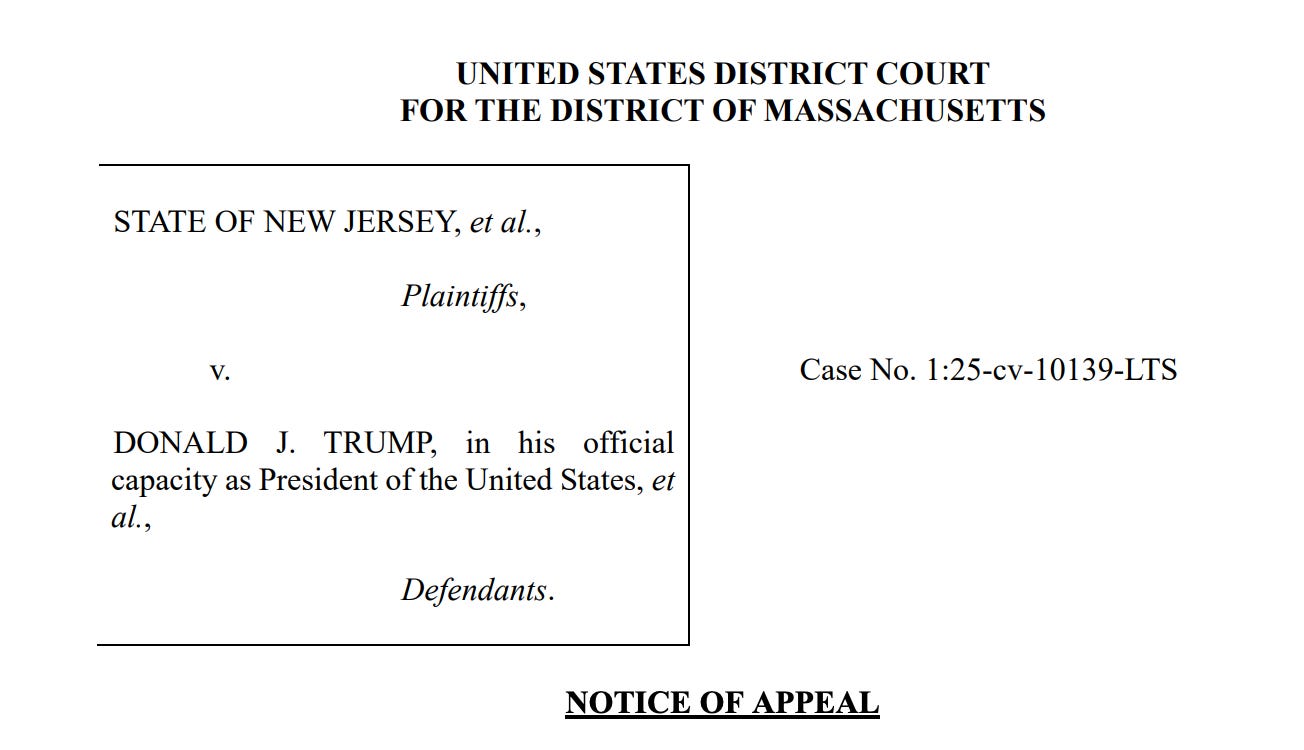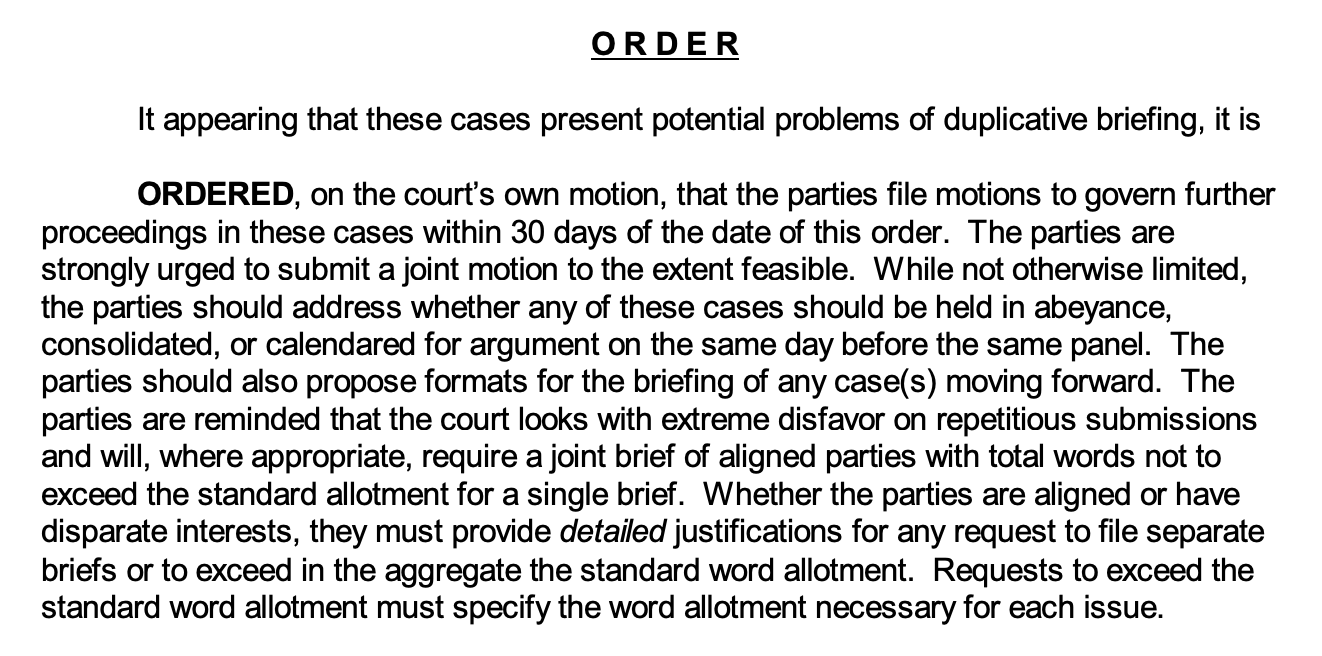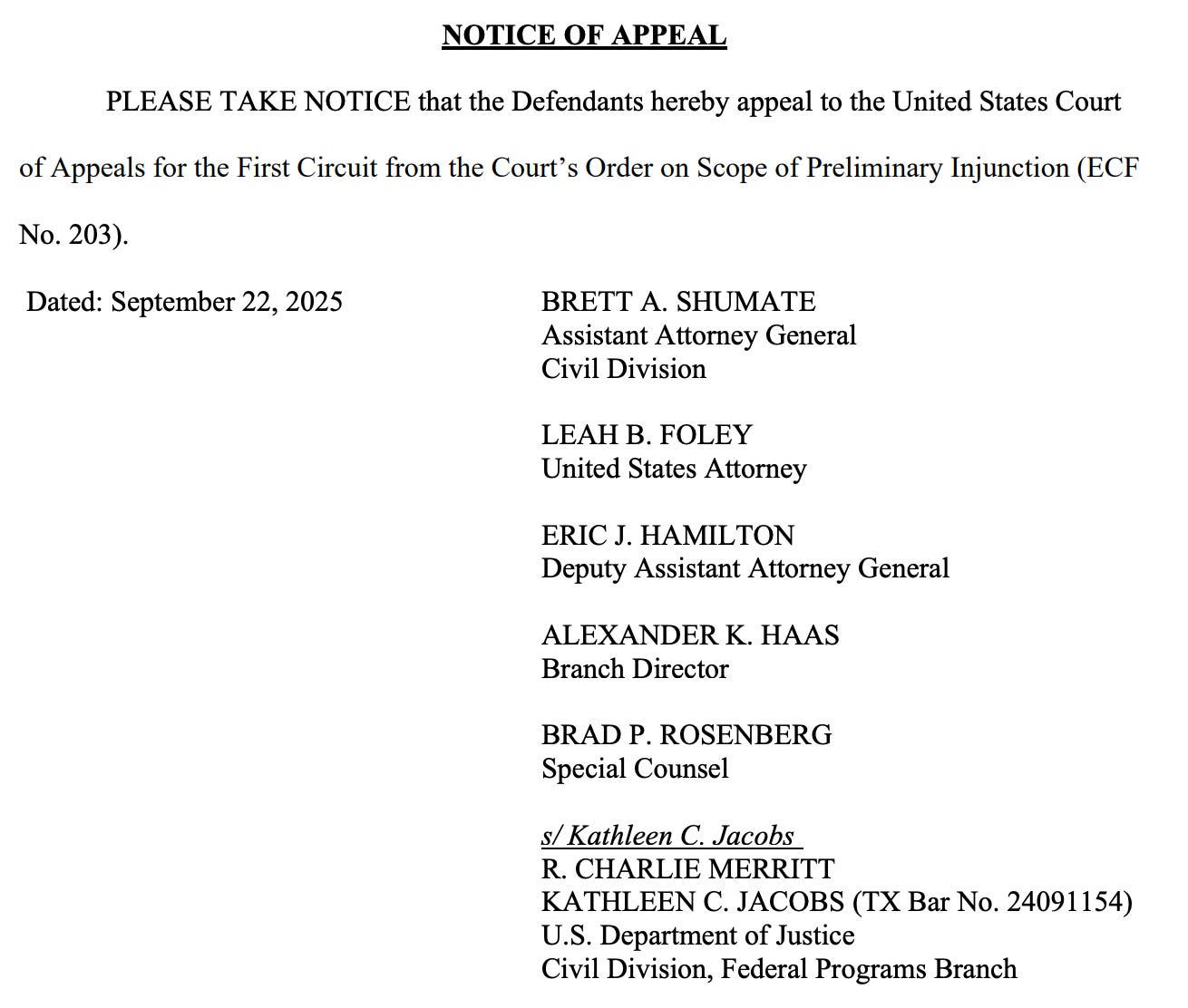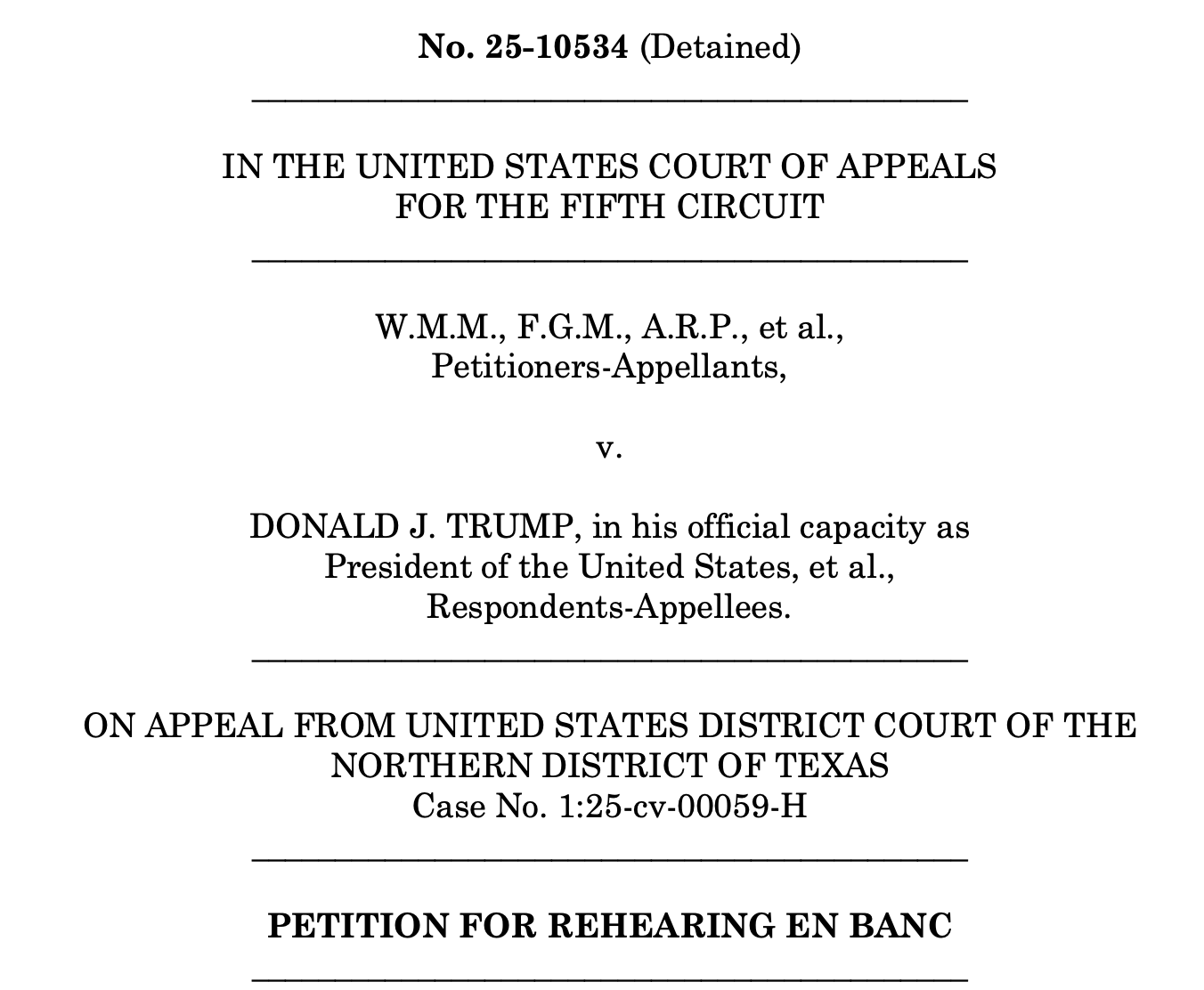Bondi's DOJ knows how to slow walk the bad cases
With a trio of examples already this week, some insights into the other end of the spectrum from DOJ's higher-profile practice of rushing to the Supreme Court.
Although the focus this year has often — and correctly — been on the Trump administration’s practice of rushing to the U.S. Supreme Court, this week has provided a trio of examples at the other end of the spectrum: Cases where even this Justice Department seems to know it is best to slow walk litigation and avoid Supreme Court rulings.
These cases involve President Donald Trump’s attacks on law firms, his executive order seeking to end birthright citizenship, and his efforts to invoke the Alien Enemies Act of 1798.
Now, there are two divergent strategic reasons to do this. One possibility is that these cases are losers and DOJ lawyers don’t want to upset Trump by losing at the Supreme Court and preventing him from implementing his policies. The other is that, while loser cases now, the DOJ lawyers could be hoping to put off final resolution of some of the most lawless and unconstitutional actions until the rule of law has been so diminished that they would be more likely to succeed in defending these policies.
A final reason for some of this is likely more pragmatic: DOJ is overwhelmed with its litigation obligations — between Trump’s lawless actions, the many challenges they prompt, the increased efforts to include DOJ’s political leadership in decisions (creating bottlenecks), and the firing and voluntary departures of countless career attorneys who actually knew how to run this sort of litigation.
That pragmatic explanation is not a full answer, though. Where it is happening, the slow walking does appear to be intentional enough that it is does signal what the Justice Department sees as its weakest spots in its current litigation docket.
On Tuesday morning, the U.S. Court of Appeals for the D.C. Circuit issued an order relating to the four Justice Department appeals of the four decisions solidly against the Trump administration in all four challenges that were filed by law firms that fought back against President Donald Trump’s executive orders attacking individual law firms.
The Justice Department waited until the closing days of the 60-day period it had to file its notices of appeals in each of the four cases — brought by Perkins Coie LLP, Jenner & Block LLP, Wilmer Cutler Pickering Hale and Dorr LLP, and Susman Godfrey LLP — with the final notice of appeal being filed on August 22. This is not the approach we’ve seen in many other cases, where notices of appeal have come far quicker — sometimes within a day of the court’s order.
Further, DOJ has made no efforts to stay these rulings during appeals, as it has done in many other cases, and it has filed no motions to expedite the appeals.
On Tuesday, though, the D.C. Circuit itself issued its order in all four cases. The order, the court’s clerk stated on behalf of the court, was being issued because it “appear[s] that these cases present potential problems of duplicative briefing.”
DOJ is moving so slowly with these cases that the D.C. Circuit now has noted that it has all of them and has, on its own, decided to push the parties onto a path forward. Now, there is a complication for the law firms (and their lawyers) here, as the appeals court is strongly suggesting that it would like this to be as streamlined as possible — from cases and briefing being consolidated down to the possibility of some cases being sidelined while one or more move forward.
But, looking at the Trump administration, the first order blocking one of these executive orders was issued on March 12. More than six months later, all challenged orders are blocks and DOJ has fastidiously kept these four cases away from the Supreme Court. And, now at the D.C. Circuit, DOJ’s approach appears to be more slow walking.
[Editor’s note: This section was updated and expanded to provide further context regarding Monday’s filing, as well as information about other, related challenges.]
In a similar vein, DOJ filed its notice of appeal on Monday as to an order in the New Jersey-led multistate challenge to President Donald Trump’s January 20 executive order seeking to end birthright citizenship. The appeal goes to the U.S. Court of Appeals for the First Circuit, which heard arguments in August over the earlier injunction issued by U.S. District Judge Leo Sorokin in the case. (Thanks to Nate Raymond for highlighting that.)
This September 22 filing is appealing the July 25 order from Sorokin — which kept the nationwide injunction in place in that case in the aftermath of June’s Supreme Court ruling ending some “universal” injunctions but noting that some multistate cases could, arguably, require nationwide relief. On remand, Sorokin found just that, ruling that such nationwide scope is necessary to “provide complete relief to the plaintiffs in this case.”
DOJ filed its notice of appeal as to that order on the scope of relief on day 59.
Now, Monday’s appeal notice might have been more of a “belt and suspenders” approach to ensuring that DOJ did not fail to appeal that specific order even though it had been before the appeals court already. But this approach has been what we’ve been seeing from DOJ across all of the cases challenging birthright citizenship order. DOJ still is yet to appeal the CASA case decisions from August 7 granting class certification and a preliminary injunction — or seek further review of the U.S. Court of Appeals for the Ninth Circuit decision from July 23 affirming a preliminary injunction in another multistate case challenging the executive order. Moreover, the approach echoes the Justice Department’s initial decision this spring to only ask the Supreme Court to stay the nationwide scope of the various injunctions during appeals.
The Justice Department is doing all it can to put off Supreme Court review of the executive order itself.
The final example is a little different, and it came Monday in one of the ongoing habeas challenges to Trump’s March 15 Alien Enemies Act proclamation and attempted AEA-based deportations.
In the case out of the Northern District of Texas that has already gone up to the Supreme Court once when the plaintiffs sought — and received — an order blocking AEA-based deportations from the district during appeals, the Trump administration lost earlier this month on a 2-1 vote at the U.S. Court of Appeals for the Fifth Circuit.
The Fifth Circuit followed up that September 2 ruling — which was before a panel that included two Republican appointees and one Democratic appointee — with a letter on September 16 letting everyone know that, if anyone was going to seek en banc review from the full court, they had until noon September 22 to do so.
DOJ — rather than rushing to the Supreme Court like it has done in other situations — took the Fifth Circuit up on that offer, filing a petition for rehearing en banc on that last day, September 22. (For what it’s worth, the docket entry notes that it was “[Entered: 09/22/2025 12:01 PM],” and it is not clear if that is when DOJ filed it or the court put it on the docket. An addendum to the entry, however, later stated that the deadline was “canceled.”)
So, not only did DOJ not rush back to the Supreme Court with this case, it waited until the last day — perhaps, beyond the last minute — to file its petition for en banc review.
Now, to be sure, DOJ could think that the full Fifth Circuit could reach a decision more in line with the administration’s wishes. But, even if that were so, the waiting-until-the-last-moment approach for filing the en banc request was a choice that will put off the case returning to the Supreme Court even longer than it otherwise would have. And, because of the Supreme Court’s earlier order, that means the Trump administration will be blocked from implementing its AEA policy in the Northern District of Texas during that time.
Slow walking.








Hadn’t heard anywhere else Reason 2, awaiting death of rule of law. Easily the most ominous.
Bondi seems to want to be daddy’s girl - not very successfully - but the outrageous litigation brings no “honor” to the P2025 boys and may not be wanted by the Christian Nationalists who “matter”.